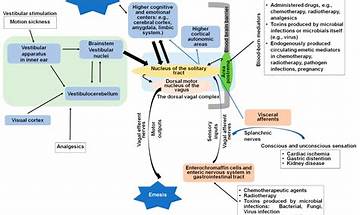Gut: The team of Southern Medical University found an important target on macrophages to restore the anti-cancer power of T cells!

Gut: The team of Southern Medical University found an important target on macrophages to restore the anti-cancer power of T cells!
* For medical professionals only.
Tumor-associated macrophages (TAMs) can be said to exist in the immune microenvironment of cancer, and they may be polarized to both M1 type which promotes inflammation and anticancer and M2 type which suppresses immunity.
Which situation is better, the answer is obvious, right? Therefore, the academic community has been exploring the key sites for regulating TAMs polarization, helping the anti-tumor immune response to seek advantages and avoid disadvantages, and even successfully reversing the immunosuppressive microenvironment.
Recently, a team of professors Li Guoxin and Deng Haijun from Southern Hospital of Southern Medical University published a paper in the well-known journal Gut, revealing for the first time that the transmembrane protein MS44A with high expression of TAMs specificity is an important target to promote polarization of TAMs to M2. Blocking MS44A can effectively restore CD8+T cell-mediated anti-tumor immunity, and it can also cooperate with PD-1 inhibitor and radiotherapy to effectively inhibit tumors such as colorectal cancer [1].
Screenshot of the first page of the paper
Previous studies have shown that MS4A4A can be used as a characteristic marker and a potential intervention target for identifying M2-type TAMs [2], and its high expression is related to the poor prognosis of patients with gastric cancer [3]. However, if the influence of MS4A4A on the function of M2-type TAMs cannot be clarified, the effect of blind intervention may be counterproductive.
This time, the team of Southern Medical University started with colorectal cancer with more TAMs infiltration and often inhibitory immune microenvironment. With the help of public database materials such as Cancer Genome Mapping Project (TCGA), the team searched for differentially expressed genes (DEGs) that are highly related to T cell surface inhibitory receptors (IRs) and are M2-type TAMs.
If a gene meets the above two requirements at the same time, it means that it may be involved in T cell depletion induced by M2 TAMs, and T cell depletion is the key mechanism of immunosuppression. Guess who was screened out? There is only one suspect-MS 4A4A, and its expression level is related to various exhaustion markers.
It can be said that if MS4A4A+TAMs can be detected in the tumor microenvironment, it means that the infiltrated CD8+T cells are probably exhausted, which is definitely not a good thing: public database data show that the mRNA level of MS4A4A in tumor samples is high, which indicates that the overall survival (OS) of patients with colorectal cancer and various cancers is poor.
The expression level of MS4A4A is related to T cell depletion markers, which can predict the poor prognosis of patients with solid tumors.
The following experiments also confirmed that MS4A4A is the key regulatory factor to promote the polarization of TAMs to M2 type in tumor microenvironment and aggravate the immunosuppression. Blocking MS 44A (RNA interference method) can significantly reduce M2 type TAMs in tumors, improve the infiltration of CD8+T cells and enhance their anticancer activity, thus effectively inhibiting cancer.
Blocking MS4A4A can significantly affect TAMs and CD8+T cells, and play an anti-cancer role.
The signal pathways related to MS 44A promoting the polarization of TAMs to M2 are PI3K/AKT pathway and JAK/STAT6 pathway. Inhibitors for these two pathways can effectively limit MS 44A's "badness", but this is an indirect intervention. What is the effect of using monoclonal antibodies directly targeting MS 44A?
Experiments show that anti-MS44A monoclonal antibody can effectively reverse the polarization of TAMs to M2 type in mouse model of colon cancer, and effectively restore the anti-cancer immune function of CD8+T cells, so as to reshape the immune microenvironment and inhibit the growth of colorectal cancer, and the treatment of anti-MS44A monoclonal antibody can also increase the number of PD-1+CD8+T cells in the microenvironment.
Anti-MS4A4A monoclonal antibody can effectively inhibit the progress of colorectal cancer.
This provides an opportunity for PD-1/L1 inhibitors to enter the market. The combination of anti-MS4A4A monoclonal antibody and PD-1 inhibitors really shows the "1+1>2" anticancer effect, even for "large tumors" with relatively strong immunosuppression (immune cells are often difficult to infiltrate). In addition, combination therapy can also induce long-term memory T cell response, which means that combination therapy may also have the value of preventing cancer recurrence.
The combination therapy of anti-MS4A4A monoclonal antibody and PD-1 inhibitor shows synergy.
On the basis of anti-MS4A4A monoclonal antibody and PD-1 inhibitor, the researchers also tried to further combine radiotherapy to improve the infiltration of immune cells. This triple scheme really achieved better cancer suppression effect, and the infiltration of CD8+T cells did increase significantly (and CD3+T cells also increased).
External database data also show that the high expression of MS4A4A in tumor may predict the poor response and prognosis of patients to immunotherapy, so the combined treatment strategy of immunization and anti-MS4A4A monoclonal antibody is expected to break the bottleneck of current immunotherapy and realize the rapid transformation to clinic.
References:
[1]Li Y, Shen Z, Chai Z, et al. Targeting MS4A4A on tumour-associated macrophages restores CD8+ T-cell-mediated antitumour immunity[J]. Gut, 2023.
[2]Sanyal R, Polyak M J, Zuccolo J, et al. MS4A4A: a novel cell surface marker for M2 macrophages and plasma cells[J]. Immunology and Cell Biology, 2017, 95(7): 611-619.
[3]Wang H, Wu X, Chen Y. Stromal-immune score-based gene signature: a prognosis stratification tool in gastric cancer[J]. Frontiers in oncology, 2019, 9: 1212.
The author of this article is Tan Shuo
Declaration: All article resources on this website, unless otherwise specified or labeled, are collected from online resources. If the content on this website infringes on the legitimate rights and interests of the original author, you can contact this website to delete it.






